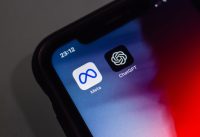A new currency-mining malware can physically harm phones
Researchers from anti-virus provider, Kaspersky Lab have discovered a new piece of Android malware that is so aggressive by nature that it can physically harm an electronic device. The malware called, “Trojan.AndroidOS.Loapi” was discovered by researchers in third-party apps, browser ads, and SMS-based spam. According to a report by Arstechnica, the malware was capable of carrying out malicious activities such as subscribing to paid services, conducting denial-of-service attacks and even physically infecting a device.

Image Source- Kaspersky Lab
The researchers describe the malware as being, “jack of all trades” because of the intensity of the danger it poses. “We’ve never seen such a ‘jack of all trades’ before,” Kaspersky Lab researchers wrote. Later in the post, they added: “The only thing missing is user espionage, but the modular architecture of this Trojan means it’s possible to add this sort of functionality at any time.”
The malware is designed to mine a new type of digital currency called Monero. Through this, the malware creators can generate new coins by the hardware of the infected device. Since the demand for Monero is low at the moment, the malware creators won’t face a difficult time while carrying out malicious activities without being spotted or caught.
Researchers from Kaspersky Lab have conducted tests on the malware within a lab setting. After experimenting for two days, they discovered that the malware leads the battery to bulge as it grows stronger. Within no time, the smartphone’s battery could deform and even potentially cause an explosion.
The report by Arstechnica noted how drive-by currency mining has been on the rise in the recent months. Numerous websites and apps have been discovered to be draining user’s CPUs and electricity. Hackers have been able to get their hands on some very personal information and even ask users to participate in the form of payment.



